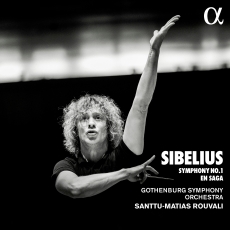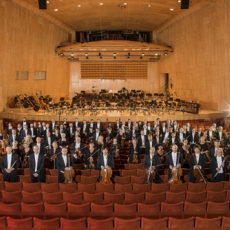Santtu-Matias Rouvali & GSO - Sibelius: Symphony No. 1 & En Saga - MusicWeb International
It was some time since I had listened to a recording of Sibelius’ first symphony, and so I decided to play this new one from Gothenburg before making any comparisons. Within seconds of the opening of the work I was struck by two things: firstly, the liquid beauty of clarinettist Urban Claesson’s playing in the important opening solo, and secondly, the very slow performance. I have five other recordings of this work: Karajan (EMI), Bernstein (Sony), Maazel (Decca), Ashkenazy (Decca) and Stokowski (Sony). Of these, the fastest performance of this opening is Stokowski’s at 1:09 and the slowest, Ashkenazy at 1:23. Rouvali clocks in at 1:30, and it does seem slow.
I don’t want this review to be a list of timings, so I will just say that the fastest first movement is Bernstein at 10:31 and the slowest, Rouvali at 11:29. Similar comments apply to the overall timings, where the fastest is Maazel at 35’54” and the slowest is, you guessed it, Rouvali at 39:42.
Speed is, of course just one factor in a performance, and the overall vision and control of the conductor, coupled with the quality of the orchestral playing and recording are the others. The Gothenburg band play with either the most wonderfully rapt fluidity, or the most honed yet brazen glory, as is appropriate, and the studio (concert hall) recording has a spacious clarity that does great credit to the recording team.
The performance is characterised by considerable volatility, where passion alternates with sudden stillness, as though pausing to admire the scenescape. This can result in the lyrical sections seeming to be pulled about by pronounced lingering and surging, whilst conversely, in the stormy landscape, the brass sections are given their head.
It is all gripping, and there are touches that delight; for example, the hard-struck timpani in the Scherzo (no muffled thuds here) and the finale is tremendously exciting – a bit wayward perhaps, but the communication is intense.
The CD finishes with the revised version of the early tone-poem En Saga (1892 r.1902), not this time a particularly slow reading, but certainly one of great expressiveness and passion. The almost becalmed centre of the piece is particularly effective, and towards the close the brass outbursts are electrifying. It finishes with another beautiful clarinet solo which fades into the chant-like repetitions of a single note by the cellos and basses, that have been such a persuasive feature of the piece throughout.
This is intended to be the opening instalment of a symphonic cycle, which I hope will include Kullervo - I very much look forward to making the acquaintance of the remaining issues.
A truly superb disc, presented in a gatefold sleeve with the booklet attached. Colour photographs of the conductor and orchestra are included, as are notes in English, French and German.


